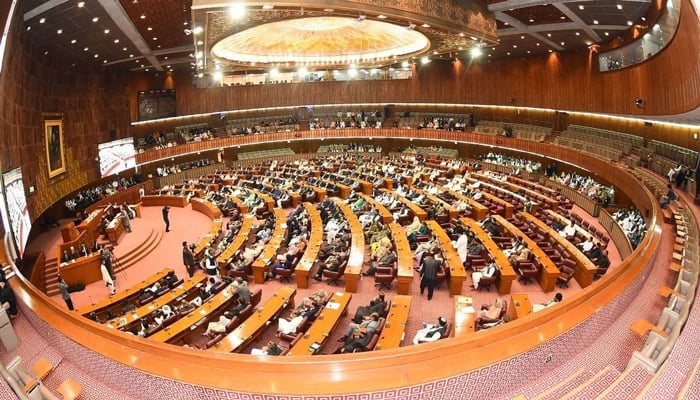ISLAMABAD: The National Assembly passed the National Anti-Money Laundering and Counter Financing of Terrorism Authority Bill, 2023 in an effort to tackle money laundering offenses and strengthen laws against illegal and corrupt practices impacting the economy.
Hina Rabbani Khar, who moved the bill, said that its enforcement would remove the country from the Financial Action Task Force (FATF) grey list once and for all.
The bill aims to establish the National Anti-Money Laundering and Counter Financing of Terrorism Authority, with the prime minister appointing its chairman.
The authority will comprise secretaries from finance, foreign affairs, interior, the governor of the State Bank of Pakistan (SBP), and chairpersons of the Securities and Exchange Commission of Pakistan (SECP), National Accountability Bureau (NAB), Federal Investigation Agency (FIA), Anti-Narcotics Force (ANF), Federal Board of Revenue (FBR), Financial Monitoring Unit (FMU), national coordinator of the National Counter-terrorism Authority (Nacta), and all provincial chief secretaries.

Additionally, the House passed eight bills, one private and seven important government bills, including the Protection of Journalists and Media Professionals (Amendment) Bill, 2023, the Press, Newspapers, News Agencies, and Books Registration (Amendment) Bill, 2023, the Pakistan Civil Aviation Bill, 2023, the National Logistics Corporation Bill, 2023, the Gun and Country Club Bill, 2023, the Pakistan Air Safety Investigation Bill, 2023, and the Institute of Gujrat Bill, 2023.
Minister for Federal Education and Professional Training Rana Tanveer Hussain emphasized the need to fulfill legal prerequisites and obtain a no objection certificate (NOC) for the establishment of universities, stating that this is crucial to safeguarding students’ future.
He stressed the significance of obtaining official approval, specifically NOC from the Higher Education Commission (HEC) before granting charter approval. Several universities have been operating without the necessary NOC, resulting in degrees, lacking HEC’s attestation, and causing distress for students and their families.
The National Assembly has the authority to legislate the establishment of universities within the Islamabad Capital Territory but not in the provinces. However, it can deliberate on legislation concerning institutions and new campuses affiliated with Islamabad-based universities.
The minister also highlighted instances where universities in Punjab were granted charters without HEC’s approval during the tenure of former chief minister Pervaiz Elahi. He advocated for the establishment of universities, but stressed the need to ensure their educational quality and operational standards, including infrastructure and faculty.


